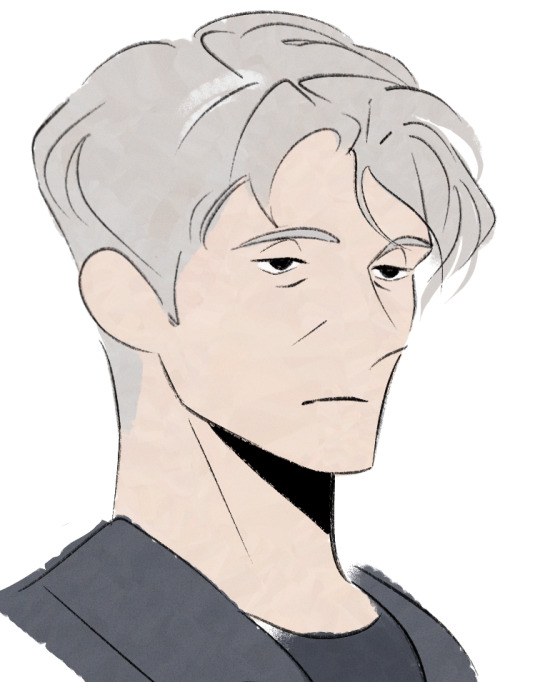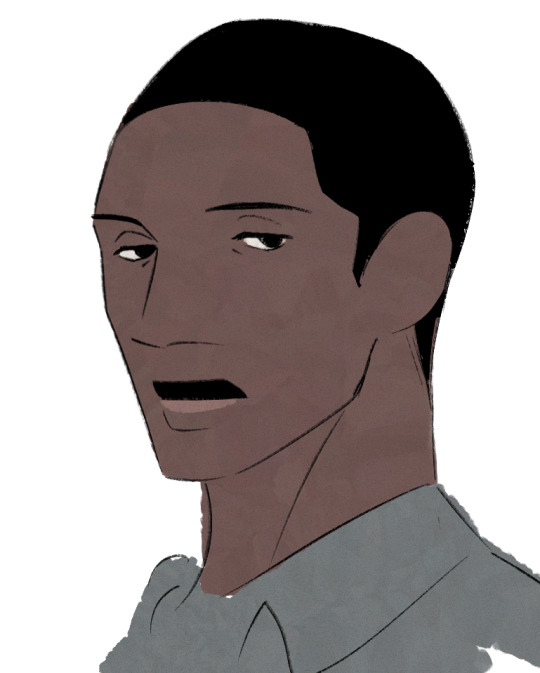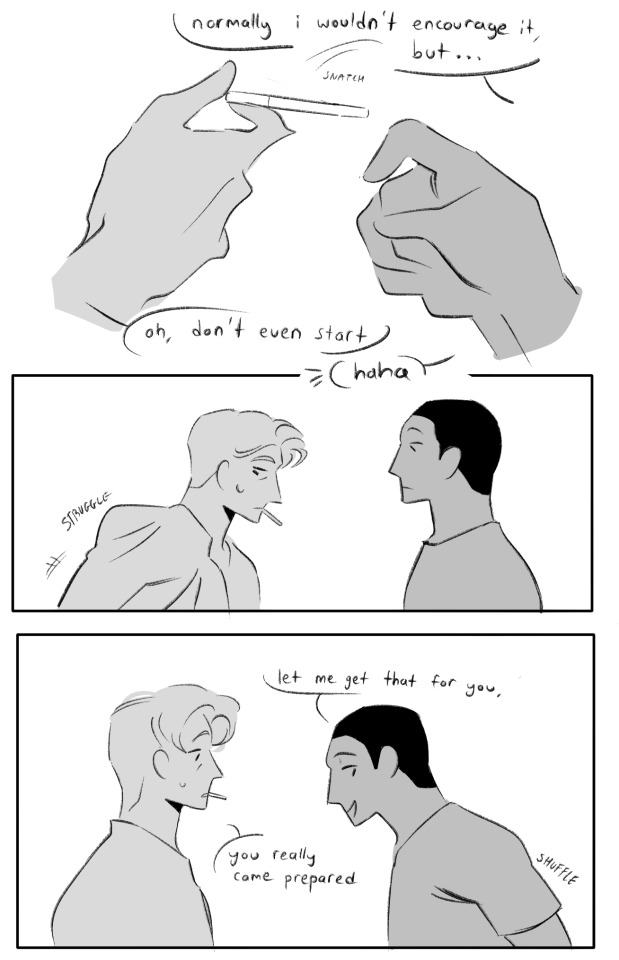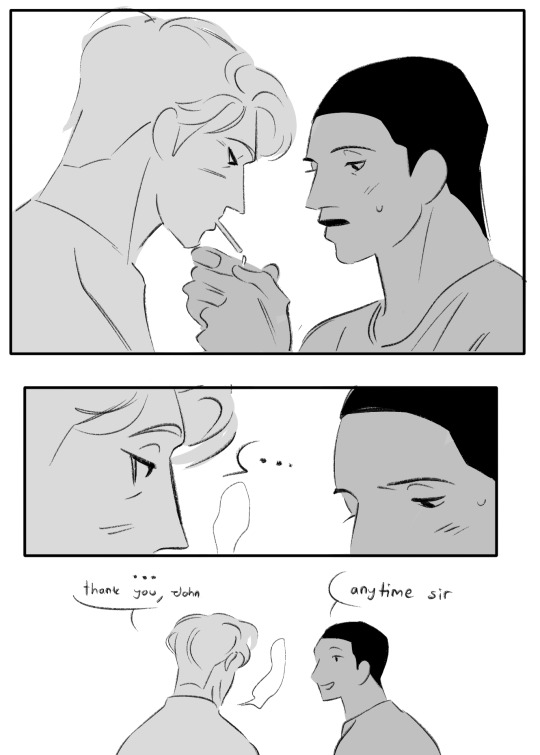#Die-Hardman
Note
Have you ever genderbent Higgs by any chance?
Hmmm... Actually, no. Honestly, I avoid drawing Higgs because I'm not exactly a fan of him, I know he is a fan-favorite, but I just don't really vibe with him, you know. Thank god there's a lot of amazing artists in the fandom that make a lot of content for him, so I'm pretty sure somebody will make a design for a genderbent Higgs eventually (maybe there's one already and I just don't know yet lol)
But some months ago I did some designs for a genderbend version of Cliff, Die-Hardman and Heartman just for fun if you're interested. I just don't think I ever shared them here.
Here they are:

Maybe I'll make some adjusts for them eventually, I was just experimenting uahsuahs
53 notes
·
View notes
Text

Happy holidays!!
#fanart#death stranding#death stranding fanart#kojima productions#heartman fanart#sam porter bridges#heartman#Die-Hardman#Deadman#fragileexpress#MAMA#BB
131 notes
·
View notes
Text
#tumblr polls#death stranding#hideo kojima#kojima productions#norman reedus#sam porter bridges#amelie strand#die-hardman#higgs monaghan#clifford unger#mads mikkelsen#gaming poll#fragile death stranding#video game#video games#gaming#death stranding higgs#troy baker#playstation#ps4#guillermo del toro
127 notes
·
View notes
Text
wanted to draw him since 2020....


#die-hardman#sketches#death stranding#game fanart#fanart#ds#video games#digital art#my art tag#love him very much (ノ´ヮ`)ノ*: ・゚#most underrated character from ds
111 notes
·
View notes
Photo

So uhh I finished Death Strading all achievements...
#death stranding#sam porter bridges#fragile#lou#amelie#deadman#die-hardman#heartman#mama#lockne#higgs#cliff unger#wojack#memes#art#my art#fanart
93 notes
·
View notes
Photo

“Bridges will unite us.”
Ey, I found a way to place all the main characters in one illustration ;) (except Higgs).
#my art#death stranding#hideo kojima#watercolors#sam porter bridges#fragile#cliff unger#mama#lockne#deadman#die-hardman#heartman#amelie#skeleton warriors#fanart#traditional painting
26 notes
·
View notes
Text

Literally them
102 notes
·
View notes
Text
I feel like we’re all sleeping on the most fuckable character of death stranding: Die-hardman
6 notes
·
View notes
Text

Analyzing Hideo Kojima's "Death Stranding" requires delving into the game's multifaceted narrative, themes, and mechanics, drawing on a range of philosophical disciplines including phenomenology, existentialism, eco-philosophy, and theories of connection and isolation.
1. Phenomenology and the Experience of the Game World:
"Death Stranding" immerses players in a world where the boundaries between life and death, physical and spiritual, are blurred. This can be analyzed through the lens of phenomenology, particularly the work of Edmund Husserl and Martin Heidegger. The game's portrayal of a world where the dead and living coexist challenges players to reconsider the nature of reality and perception, resonating with Husserl's ideas about the subjective interpretation of experiences and Heidegger's concept of 'being-in-the-world' - how we engage with and understand our environment.
2. Existential Themes of Isolation and Connection:
The game’s exploration of isolation and the need for connection aligns with existentialist themes. Drawing from Jean-Paul Sartre’s notion of existential isolation – the idea that individuals are fundamentally alone in their subjective experiences – "Death Stranding" showcases the protagonist Sam's journey as a metaphor for human existential crises. However, in contrast to Sartre’s somewhat bleak outlook, the game also incorporates Albert Camus' philosophy of finding meaning in an absurd world, particularly through human connection and solidarity.
3. Eco-Philosophy and the Relationship with Nature:
"Death Stranding" presents a post-apocalyptic landscape that forces players to navigate and connect a fragmented world, reflecting eco-philosophical ideas. Philosophers like Arne Naess, who pioneered deep ecology, emphasized the intrinsic value of all living beings and the importance of a harmonious relationship with nature. The game’s depiction of a ravaged Earth, where human actions have severe consequences, echoes these eco-philosophical concerns, urging players to consider their relationship with and impact on the natural world.
4. The Ethics of Technology and Artificiality:
The game’s use of advanced technology, such as the Bridge Babies (BBs), and the artificial environments created to sustain life, can be analyzed through the work of philosophers like Hans Jonas and Martin Heidegger. Jonas’ ethics of responsibility and his caution about technological advancements pose relevant questions about the moral implications of using technology to manipulate and control natural processes. Heidegger’s critique of technology and its alienating effects is also pertinent in understanding the game's narrative.
5. The Concept of Death and Mortality:
"Death Stranding’s" central theme of death invites reflection on mortality from a philosophical standpoint. Arthur Schopenhauer’s pessimistic philosophy, which views death as an integral part of life, and his exploration of the will to live despite suffering, offer insights into the game’s narrative. The constant presence of death in the game challenges players to confront their mortality and find purpose in a transient existence.
6. Derrida and the Notion of Hauntology:
Jacques Derrida’s concept of hauntology – the presence of elements from the past as spectral or haunting forces in the present – is a useful framework for analyzing "Death Stranding’s" narrative, where past events and deceased individuals continue to impact the living world. The game’s portrayal of timefall, an accelerated aging process, and the presence of BTs (Beached Things), entities from the afterlife, resonate with Derrida’s ideas about the persistence of the past and its impact on present reality.
In conclusion, "Death Stranding" offers a rich tapestry for philosophical exploration, intertwining themes of phenomenology, existentialism, eco-philosophy, technology, mortality, and hauntology. Through its immersive world and narrative, the game invites players to engage with profound questions about human existence, our relationship with nature and technology, and the ever-present reality of death and memory. Kojima's creation stands as a compelling intersection of gaming and philosophical inquiry, challenging players to ponder deeply about the nature of our existence and connections in an increasingly fragmented world.
#Hideo Kojima#Death Stranding#BB#Bridges#sam bridges#Cliff Unger#Amelie#Higgs Monaghan#Peter Englert#Fragile#Bridge Baby#Die-Hardman#Deadman#Heartman#PlayStation 4#PS4#PlayStation 5#PS5#Pixel Crisis
2 notes
·
View notes
Text
#Personally I think they all have sad backstories#it's hard to choose!!#I'll probably have to go with Deadman or Heartman or Mama#death stranding#mama#sam bridges#sam porter bridges#amelie#heartman#deadman#Die-Hardman#fragile#higgs monaghan#higgs#bb lou#preppers#death stranding preppers#ds#sam
11 notes
·
View notes
Conversation
Die-Hardman: Do you ever want to talk about your emotions, Sam?
Sam: … No.
Deadman: I do!
Die-Hardman: I know, Deadman.
Deadman: I’m sad!
Die-Hardman: I know, Deadman.
#Source: Incorrect Quotes Generator#POOR DEADMAN#he's literally my fav character#so innocent#sigh#death stranding#incorrect quotes#die-hardman#sam porter bridges#deadman
27 notes
·
View notes
Text
twitch
Death Stranding again tonight. I think the story's starting to make some sense. I absolutely do not trust Die-Hardman or anyone at Bridges, and I'm wondering if maybe some government scientist or somebody caused the Stranding by poking their nose somewhere it didn't belong. (No spoilers, plz- I've only played 8 hours of the game, I'm still within walking distance of Central Knot.)
Had a bit more real gameplay tonight, instead of it being all cutscenes. I'm loving this method of sharing between players.
#my gameplay#my video#twitch#livestream#death stranding#sam porter bridges#die-hardman#deadman#heartman#bridge baby#central knot city#beached things#mature audiences only#viewer discretion is advised
0 notes
Text

phone stranding
#fanart#death stranding#death stranding fanart#kojima productions#sam porter bridges#Die-Hardman#ios#phone
46 notes
·
View notes
Text
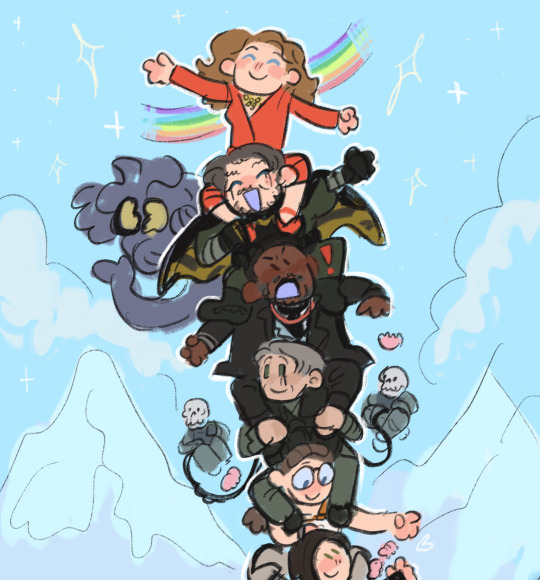
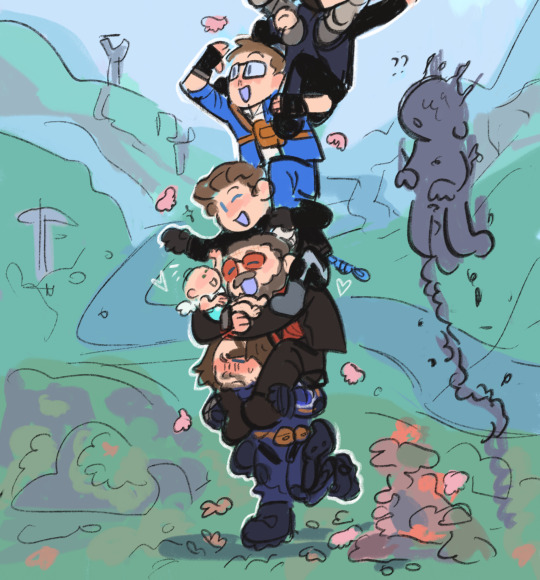
the gang when the death strands ^-^ big long ver under cut
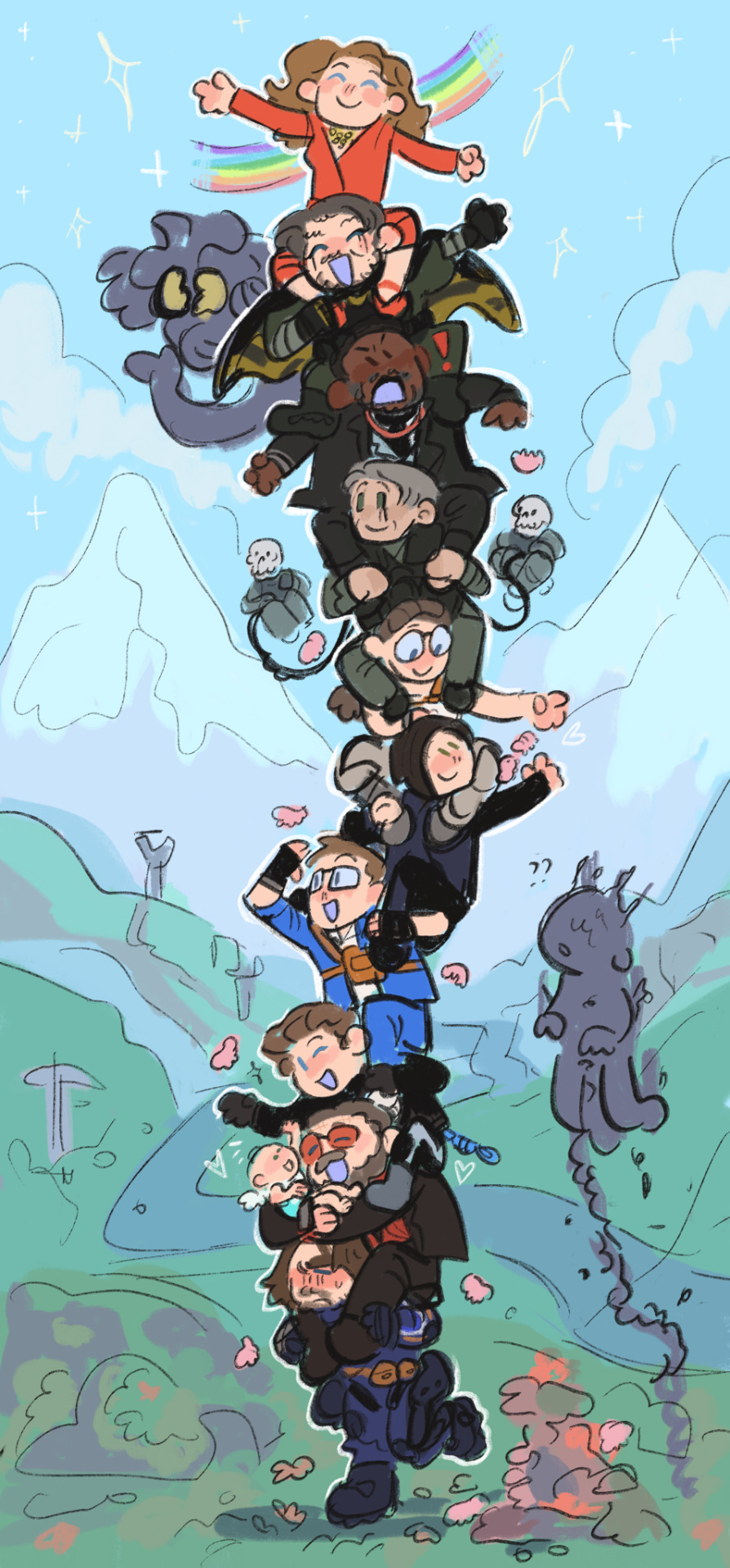
#death stranding#do i... tag them all... oh no...#sigh#sam porter bridges#deadman#fragile#lou#heartman#lockne#mama#clifford unger#die hardman#higgs monaghan#amelie#< i dont even know if those are the right tags#woop.jpg
118 notes
·
View notes
Text

[Image description Bluesky post by deathco.re "if hideo kojima had written "the tragedy of julius caesar" instead of shakespeare he would've named brutus "Ides Marchman""] Source
#image described#image description added#described images#hideo kojima#metal gear solid#death stranding#die hardman#julius caesar#brutus#The tragedy of julius caesar#william shakespeare#shakspeare
225 notes
·
View notes
